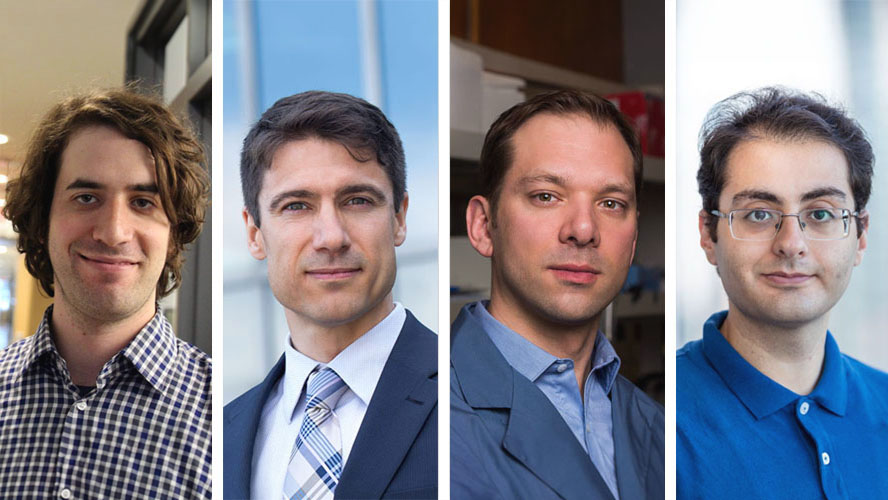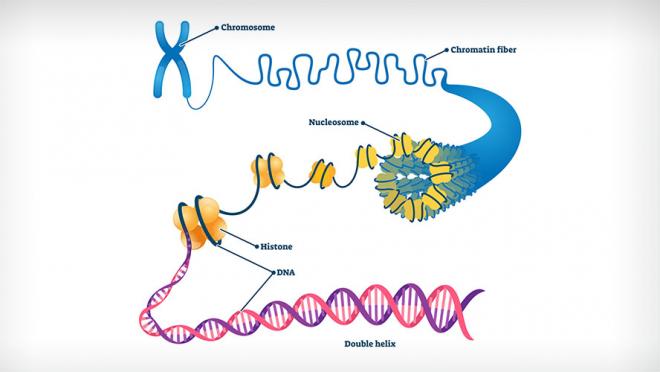
A study from the Princess Margaret Cancer Centre (PM) has identified the genetic mechanisms that underlie how human papillomavirus (HPV) drives cancer development.
Over 200 types of HPV have been identified and the symptoms of infection can range from warts to cancerous tumours. “In fact, almost all cervical cancers and up to 70% of head and neck cancers are driven by HPV infections,” says PM Senior Scientist and radiation oncologist Dr. Scott Bratman.
Although the basic architecture of the HPV genome is similar across viral subtypes, not all HPV infections lead to cancer. A key difference between benign and invasive infections is whether the viral genome integrates into the infected individual’s DNA.
When viral DNA integrates into someone’s genome, existing genes are disrupted, which can lead to a wide range of health problems. Integration of viral DNA occurs in over 80% of invasive cancers caused by HPV.
“HPV integration notably leads to less favourable outcomes, yet our understanding of its impact and mechanism in driving cancer development remains limited,” says PM Senior Scientist Dr. Michael Hoffman. "By creating new computational methods for finding HPV integration in large-scale genomics data, we were able to identify changes in gene expression and gene regulation caused by HPV integration in people with cervical and head and neck cancers."
The team’s study, published in Genome Biology, included the analysis of datasets relevant to DNA architecture (i.e., chromatin accessibility), DNA modification (i.e., the epigenome) and the transcription of genes into proteins (i.e., the transcriptome) from 295 people with cervical cancer, 58 people with head and neck cancer, and five cell lines infected with HPV.
The team identified mechanisms by which HPV integration affects human DNA. “We observed changes in chromatin accessibility and gene expression within a region that spanned 100,000 base pairs away from HPV integration sites—where many genes with known roles in tumour development are located,” says Dr. Mehran Karimzadeh, the first author of the study, who performed the work while a PhD student in the Department of Medical Biophysics at the University of Toronto.
“These changes appear to be unique to HPV,” adds Dr. Karimzadeh. “When we looked at another virus that can cause cancer—the Epstein-Barr Virus—we found that the integration of viral DNA did not have the same effect on the human genome.”

DNA in a human cell is organized into larger structures called chromatin (illustrated above). Findings from the study revealed that the integration of viral DNA can change the architecture of chromatin.
“Our results also suggest that the binding of a specific protein, called CTCF, to the integrated viral DNA may cause reorganization of the host genome,” says PM Senior Scientist Dr. Mathieu Lupien. “This is particularly interesting because this protein acts as a scaffold to pull DNA together and activate gene expression. The integrated viral DNA displaces this scaffold to promote the activation of cancer-causing genes”
By comprehensively analysing genomics data, the team discovered that integration of HPV DNA into the human genome initiates a domino effect. Integration at a specific site leads to downstream effects on the structure of the genome, which in turn alters gene expression and, ultimately, leads to cancer development. Finding ways to block this cascade could unlock future therapeutic strategies for a variety of cancers.
This work was supported by the Canadian Cancer Society, the Ontario Institute for Cancer Research, the Joe and Cara Finley Centre for Head & Neck Cancer Research, La Fondation Emmanuelle Gattuso, The Slaight Family Foundation, the Ontario Ministry of Training, Colleges and Universities, the University of Toronto, the Peterborough K.M. Hunter Charitable Foundation, the Parya Trillium Foundation and The Princess Margaret Cancer Foundation.
Dr. Michael Hoffman is an Associate Professor in the departments of Medical Biophysics and Computer Science at the University of Toronto (UofT). Dr. Scott Bratman is an Associate Professor in the department of Medical Biophysics and Radiation Oncology at UofT. Dr. Mathieu Lupien is an Associate Professor in the Department of Medical Biophysics at UofT and an Investigator II at the Ontario Institute for Cancer Research. Dr. Mehran Karimzadeh is a former PhD student in the Department of Medical Biophysics at UofT.
Karimzadeh M, Arlidge C, Rostami A, Lupien M, Bratman SV, Hoffman MM. Human papillomavirus integration transforms chromatin to drive oncogenesis. Genome Biol. 2023 Jun 27. doi: 10.1186/s13059-023-02926-9.

The analysis of multiple large-scale datasets in parallel can provide deep insights into the genetic mechanisms underlying cancer development—and can help shape future anticancer therapies.




